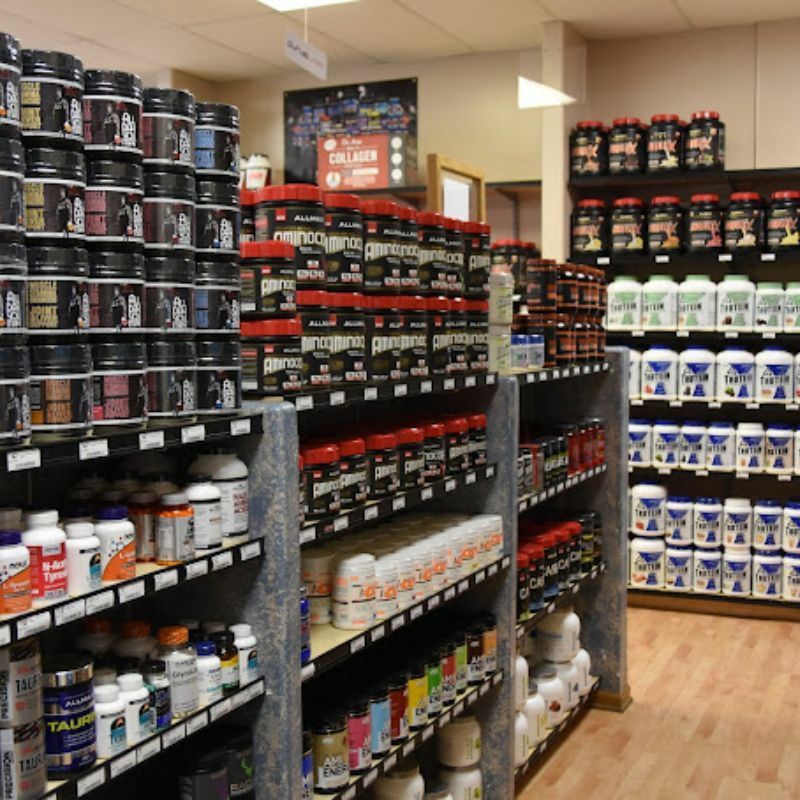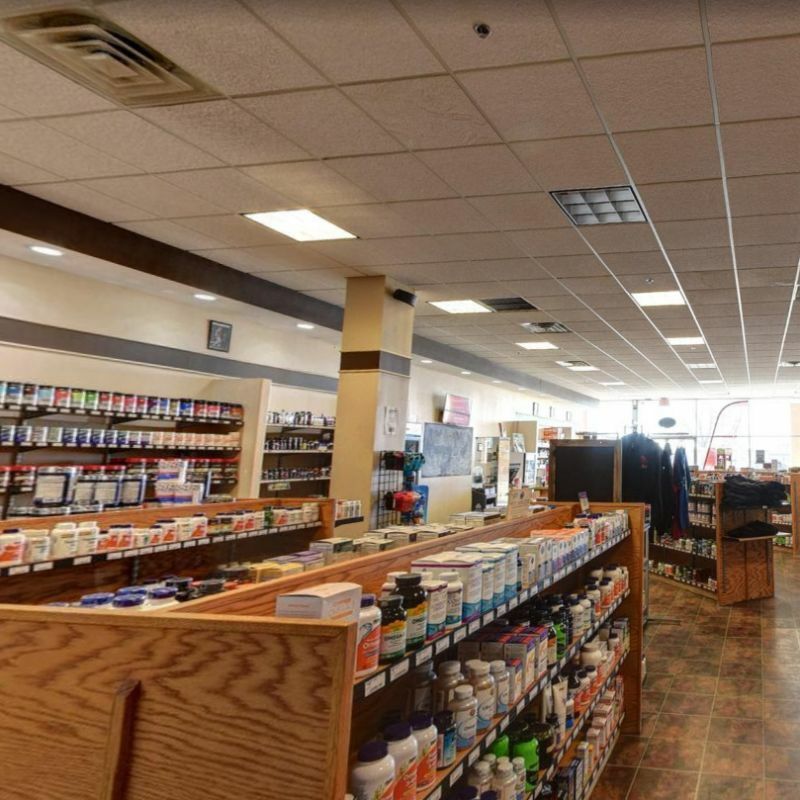Lipodrene Recall: Everything You Need to Know
Lipodrene is a popular weight loss supplement or fat burner as they're often referred to manufactured by Hi-Tech Pharmaceuticals out of Norcross GA. Lipodrene is an incredibly popular weight loss supplement which has been around for years and who's claim to fame is "Over 1 Billion Tablets Sold" with users touting its ability to boost metabolism, suppress appetite and increase energy levels. Back in May of 2021 a batch of Lipodrene was recalled after it was discovered it contains an illegal stimulant called 1,4-dimethylamylamine, better known as DMAA. It's worth briefly mentioning a few things; 1. this was a voluntary recall, 2. it involved one lot of Lipodrene, 3. this ingredient DMAA was legal and in many weight loss products and preworkouts just a few years earlier, and 4. according to the FDA no ill affects had been reported. There's a lot of mis-information and muddled information circulating online so in today's post we're going to clear that up.
What is Lipodrene?
Lipodrene is a weight loss supplement manufactured and sold by Hi-Tech Pharmaceuticals out of Norcross, GA. Hi-Tech is a well known sports nutrition brand but what many don't know is Hi-Tech also manufacturers supplements for a lot of the top brands on the market as well as a lot of private label over the counter pain relievers and cold medicines for large drugstore chains and grocery stores.
Lipodrene has been around for years and has quickly become one of the most popular and hottest selling fat burners on the market due to it's effectiveness in helping users lose weight, have more energy and boost metabolism. The formulation of Lipodrene includes Ephedra Extract, Caffeine and a host of other stimulants along with DMHA, a powerful stimulant stronger than caffeine which. It's worth pointing out that in 2017 Hi-Tech replaced the DMAA in Lipodrene and various fat burners and preworkouts it manufactured with DMHA, a similar ingredient but one which is about a third of the strength of DMAA. Prior to 2017 DMAA was a popular ingredient in preworkout and weight loss supplements and was used by most brands in the supplement industry.
The Banning of DMAA
DMAA, the common name for 1,3-Dimethylamylamine is a powerful stimulant that prior to 2017 was incredibly popular in the supplement space and was commonly used in preworkout supplements, weight loss supplements and a variety of supplements which aim to increase energy levels.
DMAA was initially marketed as a nasal decongestant but quickly gained popularity in preworkouts and weight loss products, similarly to ephedra, for its powerful energy boosting and fat burning effects. DMAA's safety eventually came into question after some reports of adverse effects including high blood pressure, heart attacks, strokes, and even death. Regulatory Agencies like the FDA issued warnings and eventually declared DMAA illegal for use in dietary supplements leading to numerous product recalls and reformulations. The FDA's stance was that DMAA posed significant health risks and lacked sufficient evidence of safety as a dietary ingredient. Opponents of the ban however argue that DMAA is found in nature which is a critical aspect in whether the FDA has the power to ban a compound, while others argue that anything if abused or used incorrectly carries risks, but that DMAA is not a risky substance if used properly.
The Lipodrene Recall
In May of 2021 Hi-Tech Pharmaceuticals issued a recall for its popular diet pill Lipodrene due to the presence of 1,4-dimethylamylamine or DMAA, a stimulant which was made illegal a few years prior in 2017. The recall effected lot #001211197 which had an expiration date of December 2025 and which was distributed throughout the United States and Puerto Rico. A few years prior in 2017 the FDA banned DMAA citing health risks including elevated blood pressure, cardiovascular events such as heart attacks and strokes and even death. Despite the recall there were no reported illnesses or ill-effects and customers who purchased the recalled products were advised to return it to the place of purchase for a full refund.
It's worth noting that even to this day some supplements are found to contain DMAA, sometimes put into them intentionally as users like this stimulant and othertimes because brands order raw ingredients from China or other countries and are given DMAA as opposed to DMHA. If a company doesn't test their raw ingredients prior to formulating this has the potential to slip through and be manufactured in supplements. It's also worth noting that dozens of preworkouts containing DMAA are still being manufactured and sold today, most notably "Crack" and various spin-offs, though these are typically sold as "Not For Human Consuption", despite having instructions on how to mix it with water, drink it and how long to take it prior to a workout.
Is Lipodrene Banned?
Lipodrene is 100% Legal in the United States of America, however it is banned in a number of countries including Canada, England, Australia and a handful of others. Rules and laws about supplements vary greatly from country to country and don't often make a lot of sense. For example in the USA we have Energy Drinks like Bang which contain 300mg of Caffeine, however in Canada, Australia and many other countries caffeine content is capped at 175mg per beverage. On the other hand Ephedra is completely legal in Canada, a much stronger stimulant than caffeine and something which is not legal in the USA.
Is Lipodrene Safe
If you have no existing health conditions, are not taking any medications, and take Lipodrene as is recommended on the bottle its a safe supplement to take. Lipodrene should not be taken with other stimulants ie do not take Lipodrene and a Preworkout and do not take Lipodrene and drink your morning coffee. Beyond that, talk to your doctor or healthcare provider prior to starting a supplement regiment of Lipodrene or any other vitamin or supplement.
†The content of this blog post is intended solely for reference and entertainment purposes. We do not offer medical advice or specific guidance regarding the products discussed. Our insights are based on a combination of anecdotal experiences, online studies/reviews, manufacturer details, and customer feedback. While we strive to present accurate and current information, we cannot assure its completeness or its alignment with the most recent product formulations or data. For any concerns or up-to-date information, we recommend visiting the manufacturer's website directly. The opinions and information provided here do not necessarily reflect the views of Best Price Nutrition; they represent the perspectives and information from the manufacturers and users. Furthermore, these statements have not been evaluated by the Food and Drug Administration. The products mentioned are not intended to diagnose, treat, cure, or prevent any disease or illness.
Recent Posts
-
DMAE in Sports Nutrition Supplements: What You Need To Know
What is DMAE?DMAE, short for Dimethylaminoethanol is a compound which is naturally found in our brai
-
Exploring Ovasitol Inositol Powder: Potential Benefits, Uses & Real Experiences
When it comes to managing hormonal imbalances in females, insulin sensitivity, and issues relited to
-
The Complete Guide to Understanding Cortisol and How to Lower Your Cortisol Levels
CortisolYou've probably heard about cortisol but what does it really do in our bodies? Cortisol is k










